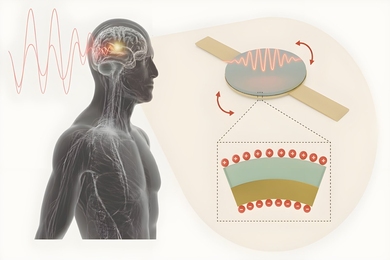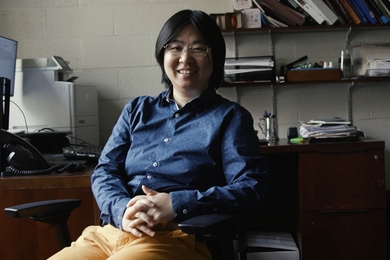Robert C. Wood, a former professor of political science at MIT who went on to lead the U.S. Department of Housing and Urban Development, the Massachusetts Bay Transportation Authority, the University of Massachusetts and the Boston Public Schools, died Friday at his Boston home of stomach cancer. He was 81.
"Professor Wood was an outstanding academic practitioner. He applied his research expertise to critical policy issues at the national and state levels and was a true builder of public higher education in the commonwealth of Massachusetts. He was much admired by his MIT colleagues in political science," said Philip Khoury, Kenan Sahin Dean of the School of Humanities, Arts, and Social Sciences and professor of history.
"Though Bob Wood's major focus was on urban affairs and the design of cities, he also had a significant interest in the development of policies for science and technology and how those subjects, so central to MIT, affected American life. He developed the first course at MIT in science, technology and public policy jointly with James R. Killian, the nation's first science advisor and previously president of MIT," said Eugene Skolnikoff, professor of political science, emeritus.
"He was an ideal leader, seeing the larger picture. I will be forever indebted to him and will miss his wise counsel and continued interest," Skolnikoff said.
Wood taught political science at MIT from 1959 to 1965. He served as undersecretary and later secretary of the Housing and Urban Development from 1965 to 1969 and was pivotally involved in implementing the Model Cities program (1966) and the Fair Housing Act (1968). He returned to MIT to teach and to direct the Joint Center for Urban Studies at MIT and Harvard. At the same time, he led the MBTA.
In 1970, he was named president of the University of Massachusetts, a post he held for seven years.
A native of Saint Louis, Mo., Wood achieved notoriety as a national figure who combined intellect, activism and political savvy in his numerous high-level roles, but his first passion, he declared, was cities.
"I'm essentially an urbanist," he told the Boston Globe in a 1994 interview.
His love for cities faced daunting expression during his tenure as superintendent of the Boston Public Schools from 1978 to 1980. The busing crisis had ended with court-ordered desegregation in 1974, but the system still reeled from turmoil when Wood took over.
"Although desegregation and forced busing are essential, they aren't the true issues," Wood said on taking the post. "The real issue is change in teaching, in employment and in the big-city system."
While Wood served as president of the University of Massachusetts he led its expansion to include UMass Medical Center in Worcester and its Boston campus. He also played a key role in bringing the John F. Kennedy Library and Museum to its present site at Columbia Point, next to UMass-Boston.
Wood was born on Sept. 16, 1923. He won a scholarship to Princeton University, interrupting his studies to serve in the Army. Wood saw action during the Battle of the Bulge, won a Bronze Star, and rose to the rank of sergeant.
After graduating from Princeton, Wood earned three degrees from Harvard: a master's in public administration and a master's and a doctorate in government.
Wood's best-known book is "Suburbia: Its People and Their Politics" (1958). His other books include "The Necessary Majority: Middle America and the Urban Crisis" (1972), and "Whatever Possessed the President? Academic Experts and Presidential Policy, 1960-88" (1993).
Wood leaves his wife, Margaret (Byers); a son, Frank of New York City; two daughters, Frances of Cambridge and Margaret Hassan of Exeter, N.H.; and two grandchildren.
A funeral will be held April 11 at 3 p.m. in St. Paul's Cathedral on Tremont Street in Boston.
A version of this article appeared in MIT Tech Talk on April 6, 2005 (download PDF).






